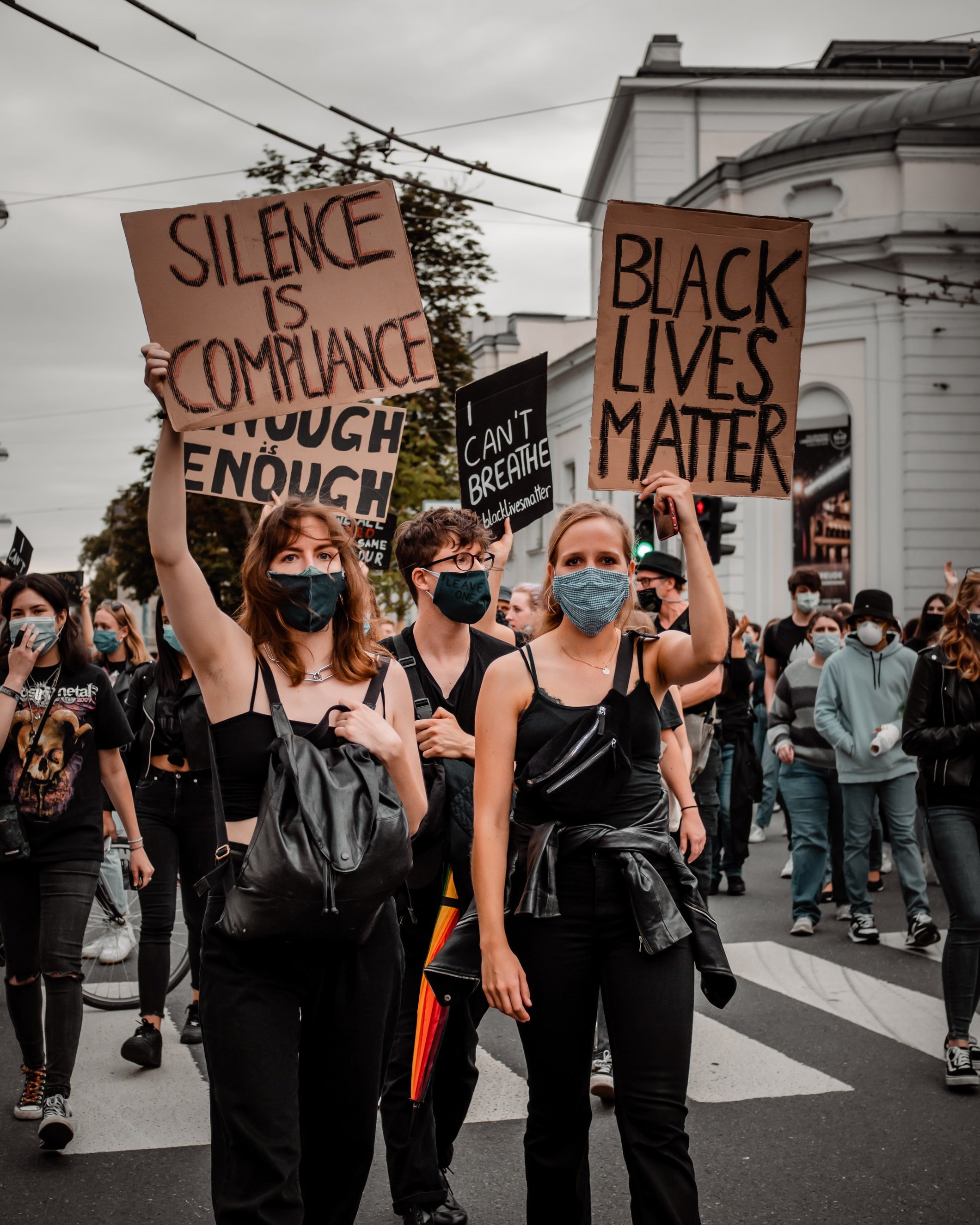
What We Do
Workshops and Professional Development
-
Whiteness is the default cultural setting in the U.S. In order to work towards racial justice it is important to understand the historical creation of whiteness, as well as how it manifests presently. James Baldwin wrote about the fact that white people are not actually white, as well as the legacy of violence that is connected to the assimilation into whiteness. In recent years, Jonathan Metzl has made the case that this country is “dying from whiteness,” and the evidence is all around us. This workshop will delve into this question of “what does it mean to be white?” as well as the benefits of divesting from whiteness, both personally as well as within organizations.
-
From chattel slavery to Jim Crow, the U.S. was founded on anti-black racism and white supremacy. We will examine history from John Punch and the Virginia Slave Codes, to the Tulsa Race Massacre, to the modern Civil Rights Movement. Watching a clip from the film Ethnic Notions will enable us to make connections to how anti-blackness is pervasive in mass media and in this country presently. Participants will have opportunities to make connections to the anti-blackness inherent in messages and socialization that they received growing up.
-
Teju Cole has written about the White Savior Industrial Complex and it is essential to understand how this psychology, consciousness, and deficit perspective is embedded within the nonprofit industry and the U.S. education system in particular. The facilitator will draw from their own personal experience participating in white savioring, as well as witnessing the damage it does. We will examine content including The Blind Side, No White Saviors and the case of Renee Bach, helping participants increase racial literacy around this important concept.
-
Time and time again, there are lessons to be learned from the distance between someone’s well-meaning intentions, and the impact of that person’s words, actions, and behaviors. This workshop will provide real-life examples for why impact matters more than intentions, with the facilitator modeling vulnerability around their own missteps. We will give participants space to delve into harm they have caused, while providing some tools for accountability, and for working towards repair.
-
This workshop will provide participants with historic and present examples of multiracial communities combating white supremacy. We will examine Lynn Burnett’s White Antiracist Ancestry Project, highlighting examples of freedom fighters, historically and presently, who work to dismantle oppressive systems, and who can provide some inspiration and guidance regarding antiracist activism. Participants will be provided with tools and strategies for deepening their commitment to working towards a multi-racial democracy that benefits us all.
-
Working towards antiracism is both personal, internal work, and external facing and collaborative work. We will look at some of the contradictions for white people in this work, before examining why “being not racist” is not good enough. We will learn about Dr. Ibram X. Kendi’s recommendations for antiracist work, and discuss adrienne maree brown’s powerful writing that may lead to some generative discomfort. We will examine examples of inspiring freedom fighters historically and presently, before making connections to various issues and lanes at the moment. Participants will have spaciousness for journal reflection about their own commitments in this work, and we will close by discussing the importance of building community, accountability partners, and deep friendships in this work.
-
There is emerging evidence that men, and white men in the U.S., are not doing well from a holistic health standpoint. Our life expectancy is shortening, and our close friendships are dwindling. We long for more intimacy and connectedness, yet the patriarchy and the man box have taught us to be stoic, to suppress emotions, and that domination is virtuous. It is past time to reject toxic masculinity and to wrestle with and question how we have been socialized. This series will be grounded, bringing in insights from a local D.C. men’s group, with the goal of building a healthy ongoing community for white men.
-
In these times and political climate, it is difficult to know how to show up for racial justice as a young white person. This brave space will be for positive white antiracist identity development and for nurturing compassion, empathy, and social justice values in young people. It is so important to build community care, as well as to draw from intergenerational wisdom and support. What issues do white youth most care about in their communities and schools? How can organizing and activism create meaningful change?
-

Coaching
Coaching is a deeply impactful support and can be tied to measurable goals, outcomes, systems, and structures. Individual and small group coaching will provide staff members with the opportunity to develop and deepen their skills. By enrolling in the coaching relationship, individuals will have the time and space to receive tailored support. The coach will use strategic questioning to enable the coachee to reflect and respond in order to create action steps and create and meet long term goals.
-

White Antiracist Affinity Space Facilitation
For white people, an antiracist affinity group provides time and space to work explicitly on understanding whiteness. This heartfelt space helps white people process out loud, share vulnerability, and learn from each other, rather than rely on Black people and People of Color to teach them. The piece Why a White Space? does a good job of explaining why these groups can be beneficial.